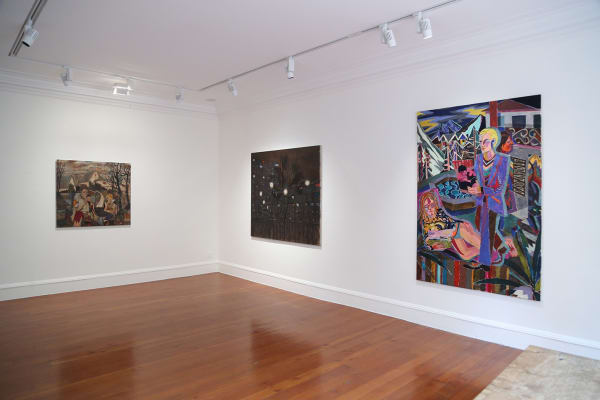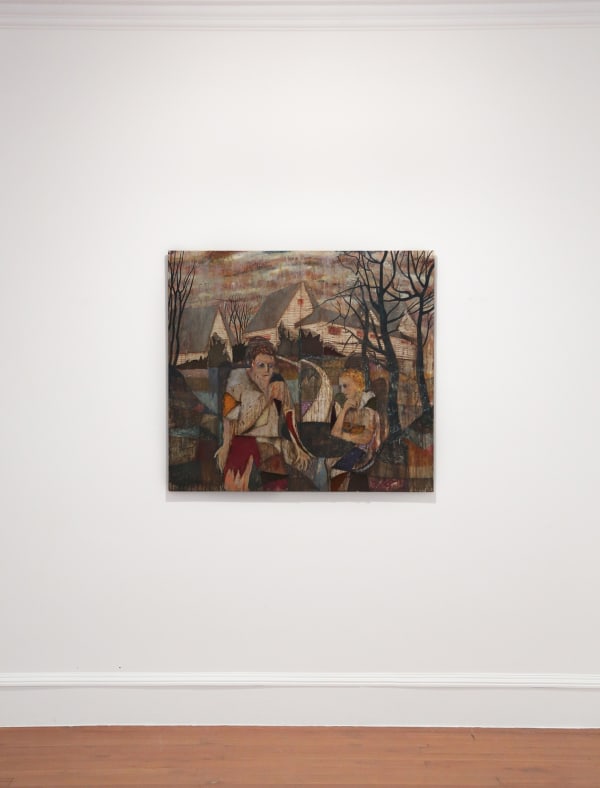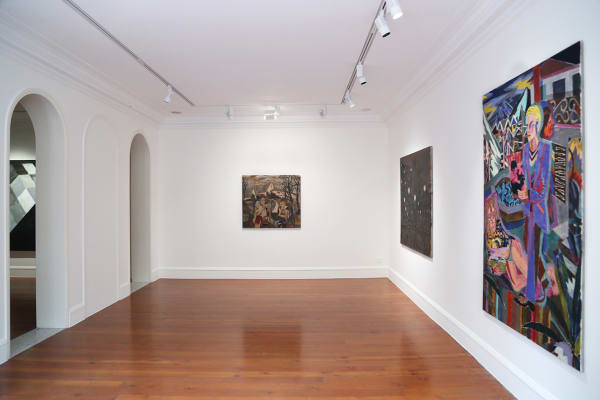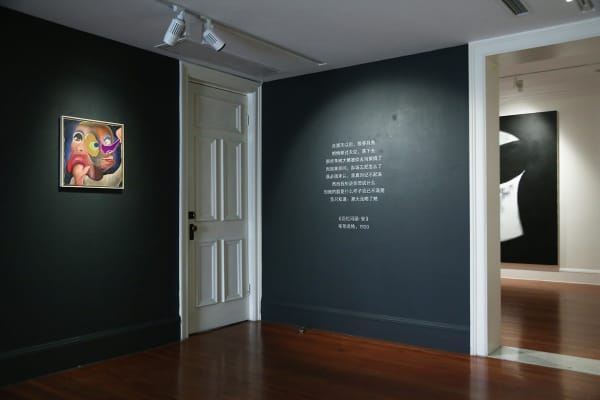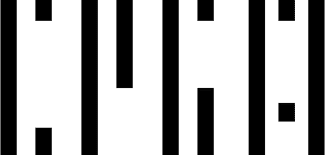Once the students of renowned German artist Jörg Immendorff (1945-2007), Armin Boehm and Mou Huan have each developed their own unique artistic languages, with profound insights into the contemporary world, under the influence of German Neo-Expressionism. The dialogue between the German and Chinese artists creates a tension that presents the World as Will and Presentation, echoing the times that we are living in.
Their mentor Immendorf created the world-famous series ‘Café Deutschland’, influenced by German dramatist Bertolt Brecht. The intentions and space of the theatre appear to be the clues to understanding these artists that show solicitude for the world that resembles an endless theatre - Armin Boehm impassively observes the vital scenes and liveliness on the stage, while Mou Huan repeatedly gazes at the emptiness and void during intervals and after the curtain call.
By adopting the approach of the German Expressionists, Armin Boehm embeds his subjects into a dramatic world of globalisation, where all manifestations of life are captured and presented. The artist says, “I don't want to do comfortable paintings, we live in an uncomfortable world.” Having no scruple about depicting absurdity, Armin imbues his works with subcultural and cyborg elements, drawing references to Hieronymus Bosch’s and Stanley Kubrick’s vocabulary. Rather than searching for a new morality, he seeks the amoral in the appearance of the world.
Mou Huan's paintings are filled with a sense of unwavering will, where his observations of the world assemble into his inner universe of profound depth and intensity. “I wish to have a sort of light in the ‘grey’ I paint”, the artist says, and that is the light of time falling onto the earth at the age of the ruins. What he portrays is often waste or objects that are about to be faded away. As if flashbacks, his paintings illustrate the props which once played a significant role in the world as a theatre - whether they are cooling towers or extinct species, they all have faded into silence and dissolution. He presents the boundless void and remains after history itself, leaving the theatre stage.
“I would like to be wise.
The old books say what wisdom is:
To shun the strife of the world and spend the short time
You’ve got without fear.
Do without violence.
Return good for evil.
Not fulfilling desires but forgetting
Counts as wisdom.
I can’t do any of that:
Truly I live in dark times!”
- Bertolt Brecht, To Future Generations (1938)
It is one’s natural instinct to search for beauty, and indeed it is the same case for an artist to create beauty. However, there is another path, that is, to comprehend and to present what is beyond beauty, after attaining all the training and skills of aesthetic appreciation and creativity. It requires one’s greater strength to gaze at evil, as one might get his fingers burned when approaching the ultimate truth. At such a cost, the artists travels through the World as Will and Presentation. In a sense, with their individual wills, the artists also weigh into the tussle of the world as a theatre, possessing their own marks within the endless flow of time.

